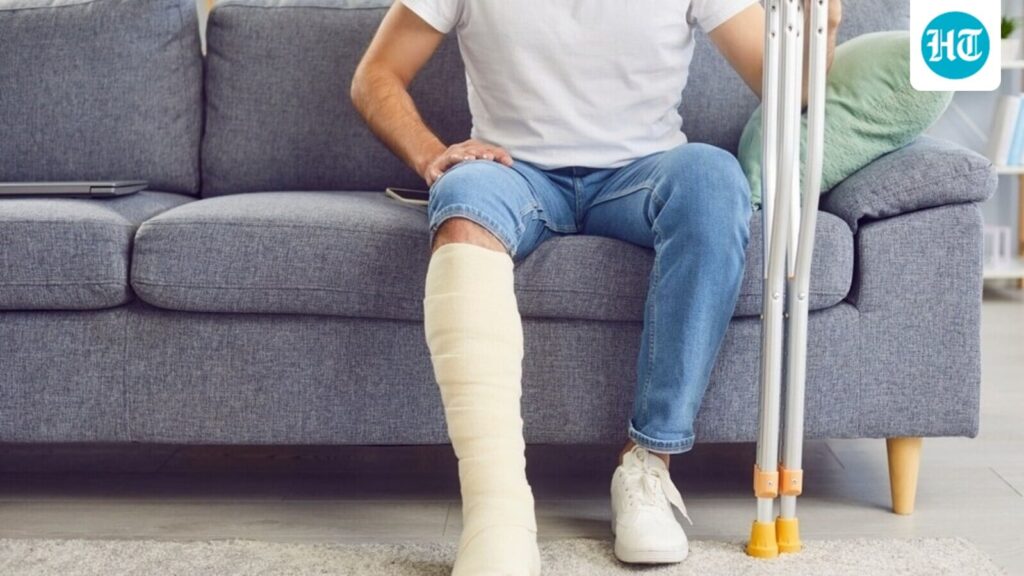Often bone fractures are results of years of poor diet and lifestyle choices. In an interview with HT Lifestyle, Dr Randhir Kenjale, consultant spine and orthopedic surgeon, Ruby Hall Clinic said, “One will have powerful bones that are usually overlooked until an accident occurs. It is not only the accidents but also the close relationship between fracture risk and the lifestyle and diet.” Also read | Lifestyle tips for youth’s bone health: Avoid these modern living habits to prevent Osteoarthritis in young adults

10 things to know about fracture risk:
Dr Randhir Kenjale further shared a few things to know about fracture risk:
1. Calcium is also necessary: The bones require consistent calcium. Malnutrition decreases the bone density and strength.
2. Vitamin D facilitates absorption: In its absence calcium goes to waste. Deficiency is frequently brought about by inadequate sunlight and nutritional deficiencies.
3. Protein aids structure: Proper protein contains bone mass, whereas excess consumption without regulation may result in loss of calcium.
4. Laziness enhances frailty: Long office hours cause bone to become weaker and muscles to lose support.
5. Smoking retards healing: Nicotine retards calcium uptake and depresses healing. Also read | Orthopedic surgeon shares 3 strategies to maintain bone health and prevent age-related frailty

6. Alcohol increases risk: Excessive alcohol consumption destroys bone forming cells and alters balance, leading to falls.
7. Sweeter and processed food is bad to the bones: It substitutes the nutrient-based food that is vital to bones.
8. Overweight makes one delicate: The decreased bone density exposes him or her to increased risks of suffering fractures.
9. Bone health varies depending on hormones: Menopause, thyroid imbalance, or low testosterone have an impact.
10. Genetics have not been eliminated: Family history counts, but lifestyle choices can be boosted or aggravated by inherited risk.
Tips to prevent bone fracture:
- Eat a bone-healthy diet: Eat dairy foods, leafy greens, nuts, fish, and fortified foods.
- Get sufficient sunlight: 10 to 15 minutes of sunlight in a day enhances vitamin D in the body.
- Be active: Strength training, yoga, walking, running exercises strengthen bones.
- Limit smoking and alcohol: Both have a direct negative effect on bone and healing.
- Keep a healthy weight: Extremes of underweight and obesity.
- Check bones: Bone density should be assessed by regular scans to develop early signs of osteoporosis. Also read | Bone strength: 6 essential tips for maintaining strong bones as you age
“Through regular exercise, good nutrition, and healthier ways, bones would remain strong even up to old age, hence less likely to produce a painful break,” the surgeon added.
Note to readers: This article is for informational purposes only and not a substitute for professional medical advice. Always seek the advice of your doctor with any questions about a medical condition.

